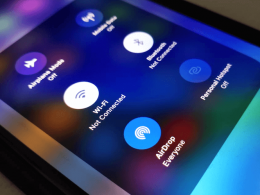The BlackBerry researchers found Chinese Hackers Group, which is targeting Linux servers, Windows, and Android devices Anonymously for years.
The research revealed that the Chinese government is attempting Cyber espionage against Intellectual property theft and data collection.
According to Blackberry report, Chinese APT (Advanced Persistent Threat) groups operating in the interest of the Chinese government have systematically targeted Linux servers, Windows systems and Android mobile devices while remaining undetected for nearly a decade.
“Linux is not typically user-facing, and most security companies focus their engineering and marketing attention on products designed for the front office instead of the server rack, so coverage for Linux is sparse,” said Eric Cornelius, Chief Product Architect at BlackBerry.
“These APT groups have zeroed in on that gap in security and leveraged it for their strategic advantage to steal intellectual property from targeted sectors for years without anyone noticing.”
Top key findings in the report include:
The APT groups examined in this report are likely comprised of civilian contractors working in the interest of the Chinese government who readily share tools, techniques, infrastructure, and targeting information with one another and their government counterparts.
The APT groups have traditionally pursued different objectives and focused on a wide array of targets; however, it was observed that there is a significant degree of coordination between these groups, particularly where targeting of Linux platforms is concerned.
The research identifies two new examples of Android malware, continuing a trend seen in a previous report from BlackBerry researchers, titled Mobile Malware and APT Espionage: Prolific, Pervasive, and Cross-Platform, which examined how APT groups have been leveraging mobile malware in combination with traditional desktop malware in ongoing cross-platform surveillance and espionage campaigns.
One of the Android malware samples very closely resembles the code in a commercially available penetration testing tool, yet the malware is shown to have been created nearly two years before the commercial tool was first made available for purchase. The report examines several new variants of well-known malware that are getting by network defenders through the use code-signing certificates for adware, a tactic that the attackers hope will increase infection rates as AV red flags are dismissed as just another blip in a constant stream of adware alerts.
The research also highlights a shift by attackers towards the use of cloud service providers for command-and-control (C2) and data exfiltration communications which appear to be trusted network traffic. “This research paints a picture of an espionage effort targeting the very backbone of large organizations’ network infrastructure that is more systemic than has been previously acknowledged,” said John McClurg, Chief Information Security Officer at BlackBerry.
“This research opens another chapter in the Chinese IP theft story, providing us with new lessons to learn.”
In February, U.S. Attorney General William Barr warned of ongoing cyber-threats against business by Chinese state actors, saying that China “employs a multi-prong approach engaging in cyber intrusions co-opting private sector insiders through its intelligence services.”











